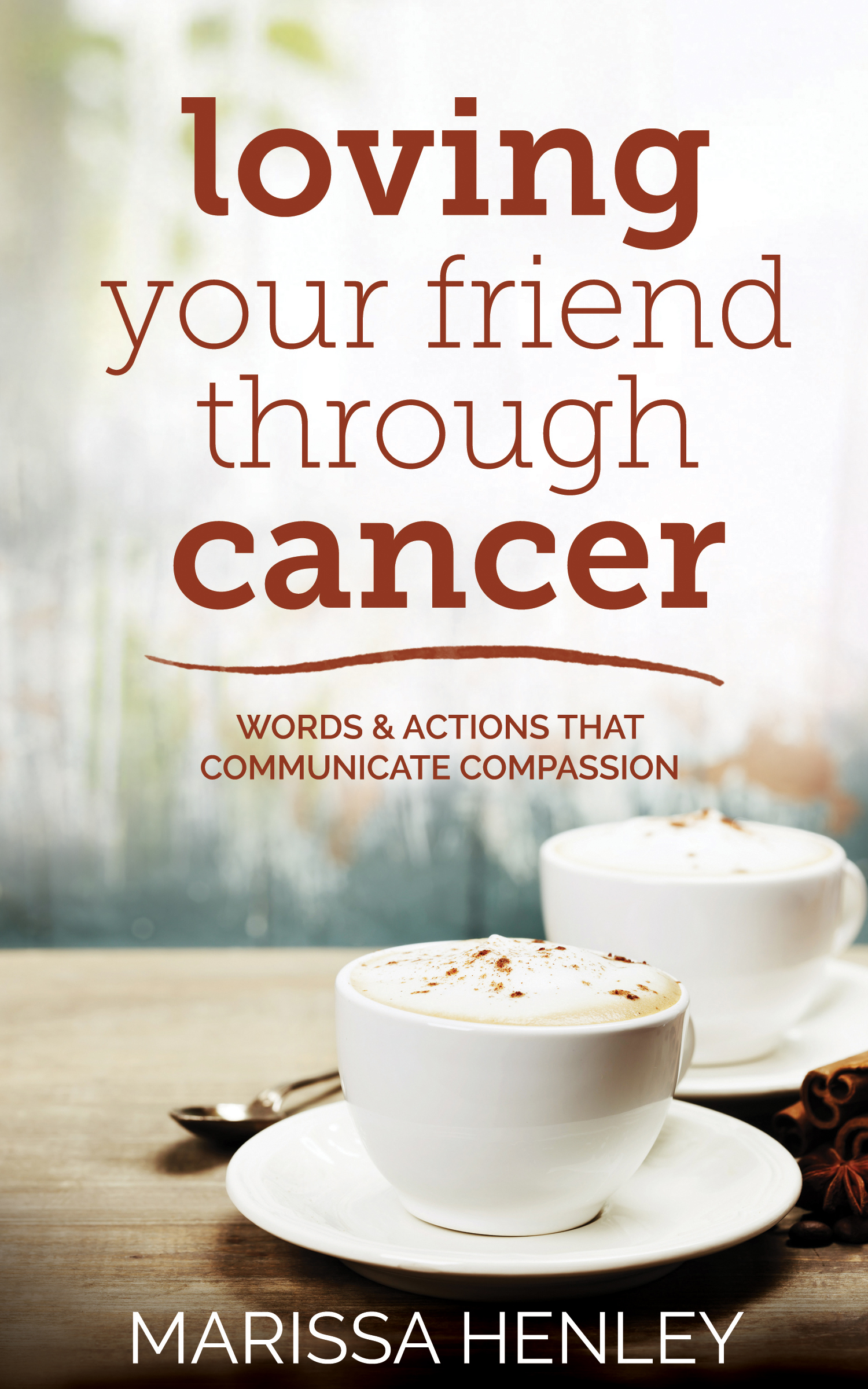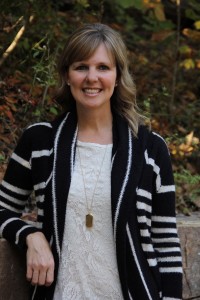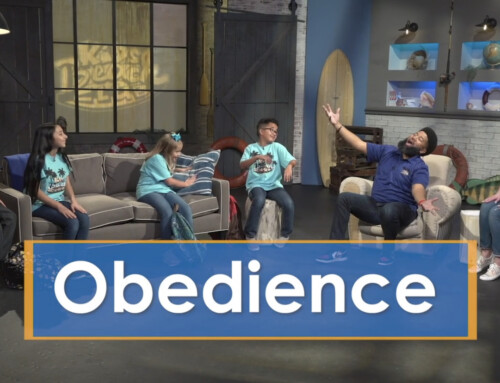I recently found out that a friend of mine has breast cancer. I’m in her “outer circle” – see Marissa’s definition below – but I didn’t know how to respond. Do I call her? Text? Bring her a meal? Is this too much/not enough? How can I help? Because that’s really what I want to do, help. But I don’t want to be invasive and I don’t want to be neglecting an opportunity to meet any of her needs. Then, Marissa Henley, a cancer survivor and my cousin’s wife, told me about her new book, Loving Your Friend Through Cancer. I couldn’t wait to pick it up. I asked her to send me a blog post so that you too could benefit immediately from her past pain that she’s transforming into her future purpose. Reading this post not only helped me to know how to respond to my friend with cancer, but also gave me insight on how I can respond to others going through grief or illness. May we be the best friends we can be to those we love when they need us most.
Five years ago, I was a young mom of three when I first heard the words: “It’s cancer.” I was standing alone in my bedroom, but I wasn’t alone for long.
Within hours, a few family members and friends came over and joined me in my shock and grief. The next day—my 34th birthday—a larger group of friends gathered for a surprise birthday party full of tearful prayers. And over the coming months, a multitude of supporters sustained our family with love, prayers and service.
My battle against angiosarcoma, a rare and aggressive cancer with a grim prognosis, involved months of high-dose chemotherapy, a clinical trial at MD Anderson Cancer Center, radiation, and surgery. I spent 14 weeks away from my family receiving treatment in Houston and fighting to see my children grow up.
Our logistical, emotional and spiritual needs seemed overwhelming. And yet, God met all of our needs, often through our friends’ sacrificial service. My friends loved us so well that I’ve written a book to share my friends’ example with other women and equip them to support their friends with cancer.
I hope that you never need to know how to love a friend through cancer. But it’s likely that at some point, you will. So here are a few tips I learned from my friends about how to support someone with cancer.
- Consider your circle.
The first step to supporting a friend with cancer is to evaluate where you fall in her circle of friends. Are you one of a few close, inner circle friends? A middle circle friend with multiple areas of overlap in your lives and routines? Or an outer circle acquaintance? Being honest about your relationship will help determine the type of support you should offer.
Inner circle friends should focus on what’s going on inside her home:
- caring for the one with cancer physically, emotionally, and spiritually,
- providing child care,
- accompanying her to medical appointments,
- and relaying information and needs to the outer circles (when requested by the one with cancer, not as gossip).
Middle circle friends’ responsibilities lie just outside the home:
- help with errands and grocery shopping,
- yard work,
- transportation,
- and other logistical needs that aren’t too personal.
Depending on your relationship with your friend with cancer and how extensive her needs are, middle circle friends may be called on for some of the inner circle responsibilities.
Outer circle friends, you have three responsibilities:
- pray,
- communicate support,
- bring food,
- and repeat!
- Say, “You don’t have to write me back.”
Your friend has a new full-time job she never wanted. Medical appointments, treatment, the need for rest, communicating updates, dealing with insurance (find insurance companies from here that will be very helpful to deal in any kind of stressful situation) . . . all of these take time she probably didn’t have to begin with!
As you communicate your support and prayers for her through email, text or phone calls, please don’t be offended if you don’t get a reply.
In fact, you can ease the burden on your friend by letting her know she doesn’t need to respond. Send a text saying, “I’m praying for you today! You don’t need to write me back – just wanted you to know I’m thinking of you.”
- Ask, “How are you today?”
I think the biggest struggle friends face is not knowing what to say. Do you bring up the cancer? Pretend it’s not happening? What if you bring it up and upset her? Then what?!?
Here’s the truth: Your friend knows she has cancer. This difficult reality is never far from her mind. She’s overwhelmed and afraid and grieving, and she’s not going to be more upset because you mentioned it.
The first time you see or talk to your friend after her diagnosis, you should acknowledge what’s happened. Let her know you are sorry to hear of her diagnosis and that you are praying for her.
(You ARE praying for her, right?!? Please do!)
After the initial conversation, I think the best approach is to match your friend’s tone. Don’t assume that every day is a difficult day. She may feel physically well or emotionally hopeful. She may be eager to talk about normal stuff like parenting, school projects, or summer plans.
A great way to assess her mood is to ask, “How are you today?” This question gives your friend the option to answer however she chooses. She can talk about the difficult emotions or physical struggles of cancer. Or she can talk about what she had for lunch. Let her direct the conversation and follow her lead.
I wish I could give you a magic formula for supporting your friend with cancer. Every woman’s journey is unique, and the way we need to receive support varies.
As you reach out to support her, you will probably have some missteps along the way. But showing up for her imperfectly is better than not showing up at all. Pray for wisdom, reach out in love, ask forgiveness when you get it wrong, and keep walking beside her as long as it takes.
You can pick up Marissa’s book on Amazon or through her website.
Marissa Henley, author of Loving Your Friend Through Cancer, is a follower of Christ, wife, mom, and cancer survivor who writes about faith, friendship, and cancer at www.marissahenley.com. Most days, you’ll find her drinking a latte while shuttling her three kids around in a minivan, wondering if the dog will ever learn to stay and if she’ll ever love cooking as much as her husband loves eating.









Very Helpful!!!!
I agree!